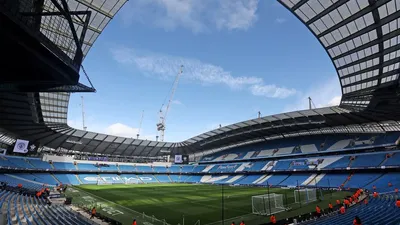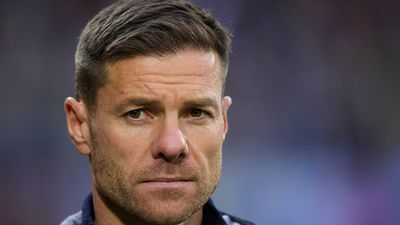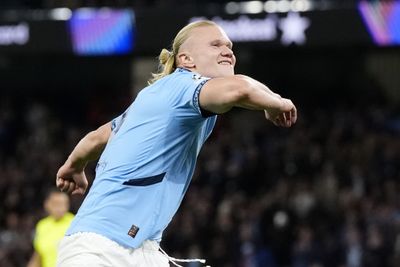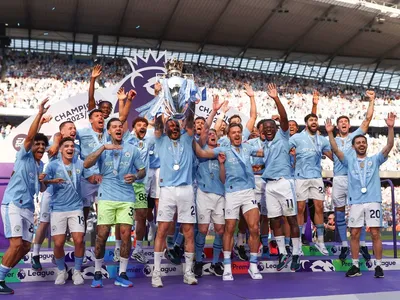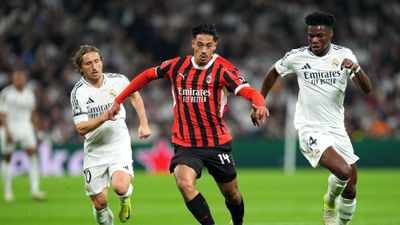Quick Betimate
Popular Leagues
-
UEFA Nations League
-
England (88)
- FA Cup
- Premier League (1)
- Championship (12)
- League 1 (2)
- League 2 (12)
- National League (12)
- National League North (1)
- National League South (1)
- EFL Trophy
- Premier League 2 (4)
- Championship Women (5)
- Derbyshire Senior Cup
- Development League 2 (16)
- FA Cup Women (1)
- FA Trophy (1)
- Isthmian Cup
- Isthmian Division One North
- Isthmian Division One South (2)
- Isthmian Premier Division (2)
- National League Cup
- Northern League Division One
- Northern Premier League (1)
- Reserve Matches
- Southern Premier League Central (2)
- Southern Premier League South (2)
- Super League Women (2)
- U21 Premier League Cup (2)
- Northern Ireland Championship
- Northern Ireland Championship Women (2)
- Northern Ireland Cup (1)
- Northern Ireland Intermediate Cup
- Northern Ireland League Cup Women
- Northern Ireland Premier
- Northern Ireland Premier Intermediate League
- Northern Ireland Premier League Women (4)
- Northern Ireland Reserve League
- Scotland Regional Cup
- Wales League Cup Women
-
UEFA Champions League (3)
-
UEFA Europa League (4)
-
Spain (217)
- La Liga (10)
- Segunda (11)
- Tercera Group 1 (1)
- Tercera Group 2 (9)
- Tercera Group 3 (9)
- Tercera Group 4 (1)
- Tercera Group 5 (9)
- Tercera Group 6 (9)
- Tercera Group 7 (9)
- Tercera Group 8 (9)
- Tercera Group 9 (9)
- Tercera Group 10 (9)
- Tercera Group 11 (1)
- Tercera Group 12 (9)
- Tercera Group 13 (9)
- Tercera Group 14 (1)
- Tercera Group 15 (9)
- Tercera Group 16 (9)
- Tercera Group 17 (9)
- Tercera Group 18 (9)
- Youth League
- Copa de Catalunya
- Copa del Rey
- Kings League - 40 mins play
- Primera Division RFEF Group 1 (10)
- Primera Division RFEF Group 2 (10)
- Primera Federacion Women
- Primera Women (1)
- Queens League - 40 mins play
- Regional Cup
- Regional League
- Segunda Division RFEF Group 1 (9)
- Segunda Division RFEF Group 2 (9)
- Segunda Division RFEF Group 3 (9)
- Segunda Division RFEF Group 4 (9)
- Segunda Division RFEF Group 5 (9)
- Segunda Federacion Women
- Tercera Federacion Women
-
USA (439)
-
Germany (149)
- Bundesliga I (9)
- Bundesliga II (9)
- DFB Pokal (1)
- Regionalliga Bayern (9)
- Regionalliga North (1)
- Regionalliga North East (9)
- Regionalliga South West (9)
- Regionalliga West (8)
- Oberliga Baden-Wuerttemberg (1)
- Oberliga Bayern North (9)
- Oberliga Bayern South (8)
- Oberliga Bremen (8)
- Oberliga Hamburg (1)
- Oberliga Hessen (10)
- Oberliga Mittelrhein (8)
- Oberliga Niederrhein (9)
- Oberliga Niedersachsen (2)
- Oberliga NOFV Nord (8)
- Oberliga NOFV Sud (1)
- Oberliga Rheinland-Pfalz/Saar (1)
- Oberliga Schleswig-Holstein (1)
- Oberliga Westfalen (1)
- 3. Liga (10)
- Bundesliga II Play-Offs
- Bundesliga II Women (7)
- Bundesliga Play-Offs
- Bundesliga U19 (1)
- Bundesliga Women (6)
- DFB Pokal Women (1)
- Regionalliga Play-Offs
- U19 Cup (1)
-
Italy (102)
- Serie A (10)
- Serie B (10)
- Serie C Group A
- Serie C Group B
- Serie C Group C
- Campionato Nazionale
- Campionato Primavera 1 (10)
- Campionato Primavera 2 (1)
- Serie D (56)
- Coppa Italia (1)
- Coppa Italia Women (1)
- Campionato Primavera 3
- Campionato Primavera 4
- Primavera Cup
- Serie A Women (4)
- Serie B Play-Offs
- Serie B Women
- Serie C Cup
- Serie C Play-Offs (9)
- U19 League Women
-
France (62)
-
Netherlands (37)
-
Scotland (28)
-
Australia A-League (6)
-
Japan J-League (10)
-
Japan J2-League (10)
-
Indonesia Liga 1 (9)
-
Denmark Superligaen (6)
-
Israel Premier League (7)
-
Colombia Primera A (1)
-
Colombia Primera B (1)
-
Esport (211)
Other Leagues
-
Albania (3)
-
Algeria (26)
-
Andorra (7)
-
Angola (8)
-
Argentina (92)
-
Armenia (11)
-
Aruba
-
Australia (132)
- A-League (6)
- A-League Women (4)
- Capital Territory NPL2 (4)
- Capital Territory NPL2 U23 League
- Capital Territory Premier League (4)
- Capital Territory Premier League Women
- Capital Territory Premier League Women Reserves
- Capital Territory U23 League
- Darwin Premier League
- FFA Cup Qualifying (10)
- New South Wales League 1 (1)
- New South Wales League 2 (7)
- New South Wales NPL Women
- New South Wales NPL2 Women
- New South Wales Premier League (8)
- New South Wales U20 League
- Northern NSW Division 1 (5)
- Northern NSW Premier League (1)
- Northern NSW Premier League Women
- Northern NSW Reserves League (1)
- NPL Queensland (6)
- NPL Queensland U23
- NPL Queensland Women (10)
- NPL Victoria (7)
- NPL Victoria U23
- NPL Victoria Women (6)
- NSW League 1 U20
- NSW League 2 U20
- Queensland PL 2 U23
- Queensland PL U23
- Queensland Premier League (6)
- Queensland Premier League 2
- Queensland Premier League 2 Women
- Queensland Premier League 3
- Queensland Premier League Women
- SA Premier League Reserves (1)
- SA Premier League Women (5)
- SA Premier League Women Reserves
- South Australia Premier League (6)
- South Australia State League 1 (6)
- South Australia State League Reserves
- Sunday League Premier Division
- Sunday League Premier Division Reserve
- Tasmania Championship (4)
- Tasmania Championship Women
- Tasmania NPL U21 League
- Tasmania Premier League (4)
- Tasmania South Division 1
- Tasmania Super League Women
- Victoria Cup Women
- Victoria PL 1 U23
- Victoria Premier League 1 (7)
- Victoria Premier League 2
- Victoria State League 1
- Victoria State League 1 Reserves
- Victoria State League 2
- WA Premier League Women
- WA Premier League Women U21
- WA State League 1 Reserves
- WA State League Reserves Cup
- Western Australia Premier League (6)
- Western Australia State League 1 (6)
- Western Australia State League 1 Women
- Western Australia State League 2
- Western Australia U23 League (1)
- Australian Matches
-
Austria (57)
-
Azerbaijan (11)
-
Bahrain (9)
-
Bangladesh (7)
-
Barbados
-
Belarus (19)
-
Belgium (16)
-
Belize
-
Benin
-
Bhutan (1)
-
Bolivia (11)
-
Bosnia & Herzegovina (24)
-
Botswana (8)
-
Brazil (197)
- Serie A (10)
- Serie B (10)
- Serie C (10)
- Amazonense
- Campeonato Alagoano
- Campeonato Amapaense (2)
- Campeonato Baiano 2 (5)
- Campeonato Brasileiro A2 Women (8)
- Campeonato Brasileiro Serie B U20 (8)
- Campeonato Capixaba
- Campeonato Carioca A2 (6)
- Campeonato Cearense B
- Campeonato Goiano
- Campeonato Goiano 2 (4)
- Campeonato Maranhense (4)
- Campeonato Matogrossense
- Campeonato Mineiro 2 (6)
- Campeonato Mineiro U20 (6)
- Campeonato Paraibano
- Campeonato Paranaense 2 (5)
- Campeonato Paulista A2
- Campeonato Paulista A3
- Campeonato Paulista A4
- Campeonato Paulista U20 (24)
- Campeonato Pernambucano
- Campeonato Rondoniense
- Campeonato Sul-Matogrossense
- Campeonato Tocantinense
- Campeonato U20 Women
- Copa Alagoas
- Copa Rio Women
- Copa Verde
- Matches (5)
- Matches Women
- Paraense (2)
- Paulista Serie B
- Paulista Women (4)
- Serie A U20 (10)
- Serie A1 Women (8)
- Serie A2 Women
- Serie A3 Women
- Serie D (32)
- U20 Cup
- U20 League (1)
- U20 Women Cup
- Campeonato Roraimense
- Copa do Brasil (27)
- Women’s Friendly
-
Bulgaria (19)
-
Burkina Faso
-
Burundi (8)
-
Cambodia (6)
-
Cameroon (8)
-
Canada (6)
-
Chile (31)
-
China (45)
-
Colombia (3)
-
Congo - Brazzaville
-
Costa Rica (6)
-
Côte d’Ivoire
-
Croatia (26)
-
Cuba
-
Cyprus (8)
-
Czech Republic (48)
-
Denmark (56)
- Superligaen (6)
- Division 1 (6)
- Cup (4)
- U19 League (2)
- Danish Womens 1.Division
- Danish Womens Elitedivisionen (3)
- 2 Division Women
- Cup Women
- Danmarksserien Promotion (10)
- Danmarksserien Relegation (10)
- Division 2 (6)
- Division 3 (6)
- Future Cup
- Play-Offs Women (3)
- Series Group 1
- Series Group 2
- Series Group 3
- Series Group 4
- Superligaen Play-Offs
- U21 League
-
Djibouti
-
Dominica
-
Dominican Republic
-
Ecuador (12)
-
Egypt (15)
-
El Salvador (7)
-
Estonia (23)
-
Ethiopia (9)
-
Faroe Islands (12)
-
Fiji
-
Finland (129)
-
Gambia (3)
-
Georgia (10)
-
Ghana (11)
-
Gibraltar (3)
-
Greece (27)
-
Guatemala (8)
-
Haiti
-
Honduras (5)
-
Hong Kong SAR China (10)
-
Hungary (16)
-
Iceland (48)
-
India (3)
-
Indonesia (12)
-
Iran (14)
-
Iraq (15)
-
Ireland (23)
- Republic of Ireland FAI Cup (3)
- Republic of Ireland FAI Intermediate Cup
- Republic of Ireland First Division (5)
- Republic of Ireland Leinster Senior Cup
- Republic of Ireland Leinster Senior League (4)
- Republic of Ireland Munster Senior Cup
- Republic of Ireland Munster Senior League
- Republic of Ireland National League Women (6)
- Republic of Ireland Premier Division (5)
- Republic of Ireland U20 League
-
Israel (13)
-
Jamaica (7)
-
Japan (57)
-
Jordan (8)
-
Kazakhstan (18)
-
Kenya (12)
-
Kuwait (8)
-
Kyrgyzstan
-
Latvia (11)
-
Lebanon (6)
-
Liberia
-
Liechtenstein (1)
-
Lithuania (33)
-
Luxembourg (18)
-
Macau SAR China
-
Macedonia (16)
-
Malawi (5)
-
Malaysia
-
Mali
-
Malta (5)
-
Mauritania
-
Mexico (9)
-
Moldova (6)
-
Mongolia (1)
-
Montenegro (7)
-
Morocco (9)
-
Mozambique
-
Myanmar (Burma) (4)
-
Namibia
-
Nepal (1)
-
New Zealand (16)
-
Nicaragua (5)
-
Niger
-
Nigeria (10)
-
Norway (102)
- Eliteserien (2)
- Division 1 (8)
- Cup (16)
- Cup Women (9)
- Division 1 Play-Offs
- Division 1 Women (6)
- Division 2 Group 1 (7)
- Division 2 Group 2 (7)
- Division 2 Group 3
- Division 3 Group 1 (7)
- Division 3 Group 2 (7)
- Division 3 Group 3 (7)
- Division 3 Group 4 (7)
- Division 3 Group 5 (7)
- Division 3 Group 6 (7)
- Interkretsserie U19
- Toppserien Women (5)
- U19 Elite League
- Youth Cup
-
Oman (6)
-
Panama (6)
-
Paraguay (20)
-
Peru (10)
-
Philippines (1)
-
Poland (88)
-
Portugal (36)
-
Puerto Rico
-
Qatar (17)
-
Romania (67)
-
Russia (61)
-
Rwanda (14)
-
Saint Kitts and Nevis
-
San Marino (3)
-
Saudi Arabia (13)
-
Senegal
-
Serbia (18)
-
Seychelles
-
Sierra Leone
-
Singapore (5)
-
Slovakia (27)
-
Slovenia (10)
-
Solomon Islands
-
South Africa (8)
-
South Korea (32)
-
Suriname
-
Sweden (98)
- Europe Friendlies
- Allsvenskan Qualification
- Superettan Qualification
- 1.div Norra (8)
- 1.div Södra (8)
- 2.div Norra Götaland (7)
- 2.div Norra Svealand (7)
- 2.div Norrland (7)
- 2.div Södra Götaland (7)
- 2.div Södra Svealand (7)
- 2.div Västra Götaland (7)
- Allsvenskan (8)
- Cup Women (2)
- Damallsvenskan (8)
- Elitettan (7)
- Juniorallsvenskan (7)
- Superettan (8)
-
Switzerland (32)
-
Taiwan
-
Tajikistan
-
Tanzania (3)
-
Thailand (10)
-
Togo
-
Trinidad and Tobago (6)
-
Tunisia (12)
-
Turkey (41)
-
Uganda (6)
-
Ukraine (18)
-
United Arab Emirates (9)
-
Uruguay (8)
-
Uzbekistan (13)
-
Venezuela
-
Vietnam (13)
-
Wales (1)
-
Zambia (9)
-
Zimbabwe (9)
Mikel Arteta: The Rise of Arsenal's Young Manager

Mikel Arteta is a name that resonates with football fans across the globe. The former Arsenal midfielder has made a name for himself as the young manager of the team, leading them to success on and off the field. Arteta's rise to becoming one of the most promising managers in football today is a story of hard work, dedication, and a passion for the game.
In this article, we'll take a closer look at Mikel Arteta: The Rise of Arsenal's Young Manager. We'll explore his journey from player to coach, his management style, and his impact on Arsenal. So, sit back, relax, and let's delve into the world of Mikel Arteta.
| Full name | Mikel Arteta Amatriain |
| Date of birth | 26 March 1982 (age 40) |
| Place of birth | San Sebastián, Spain |
| Height | Height1.75 m (5 ft 9 in) |
| Position(s) | Midfielder / Winger |
| Current team | Arsenal (manager) |
Mikel Arteta is regarded as one of the finest players of his generation, having served as both an offensive and defensive midfielder during his professional career.
After Unai Emery was fired in November, Mikel Arteta, the club's former player, took over as temporary head coach, replacing Freddie Ljungberg. Since then, Arteta has worked hard to improve the team's performances, placing them ninth in the Premier League.
Arteta is a retired Spanish footballer who played as a midfielder throughout his professional career. He is presently the Gunners' head coach, having previously served as Guardiola's co-assistant at Manchester City.
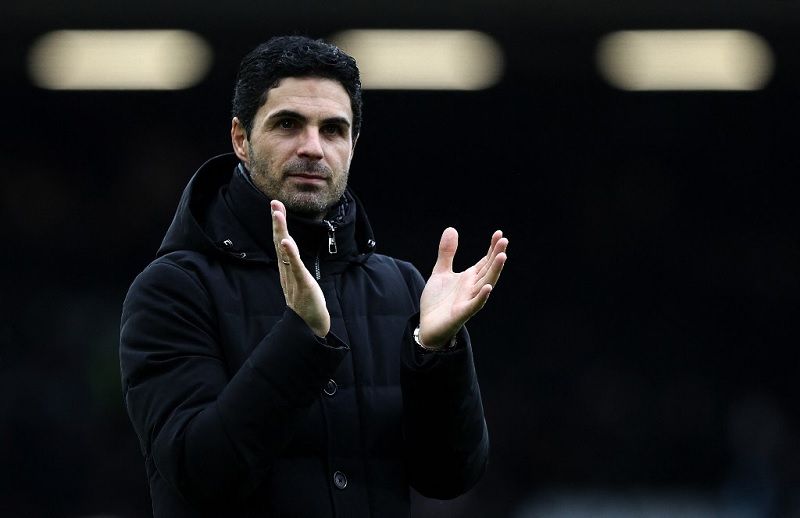
Mikel Arteta is regarded as one of the finest players of his generation
Arteta began his career as a trainee with FC Barcelona but could not get into the first squad and was finally loaned out to Paris Saint-Germain in the French division.
Later he was recruited by the Scottish Premier League team Rangers. Following his success in Scotland, Arteta returned to Spain to play for Real Sociedad. However, he could not establish himself in the first team and was loaned to Everton for the remainder of the 2004-05 season before joining permanently in July 2005.
He made a permanent switch to Arsenal in 2011 and was selected captain of the club in August 2014. Before his contract terminated at the end of the 2015-16 season, Arteta had won two FA Cups and two FA Community Shields with Arsenal. Now that we've established all of this, it's time to go a little more into the facts concerning the young Arsenal coach.
Arteta's Playing Career
Mikel Arteta, a former Spanish professional footballer, is now a household name in the world of football. As a player, he had a successful career playing for top European clubs like Paris Saint-Germain, Rangers, Everton, and Arsenal, where he captained the team to their 13th FA Cup title. Arteta's journey as a player is one of determination, hard work, and perseverance. In this article, we will dive into his illustrious career, from his early beginnings to his last days as a player, and explore the impact he made on the game.
Early Beginnings and Youth Career
Mikel Arteta was born on March 26, 1982, in San Sebastian, Spain. From an early age, he had a love for football and started playing at the youth level with his local team, Antiguoko. It was there that his talent was noticed by scouts from Barcelona, and at the age of 15, Arteta was offered a place in Barcelona's youth academy, La Masia.
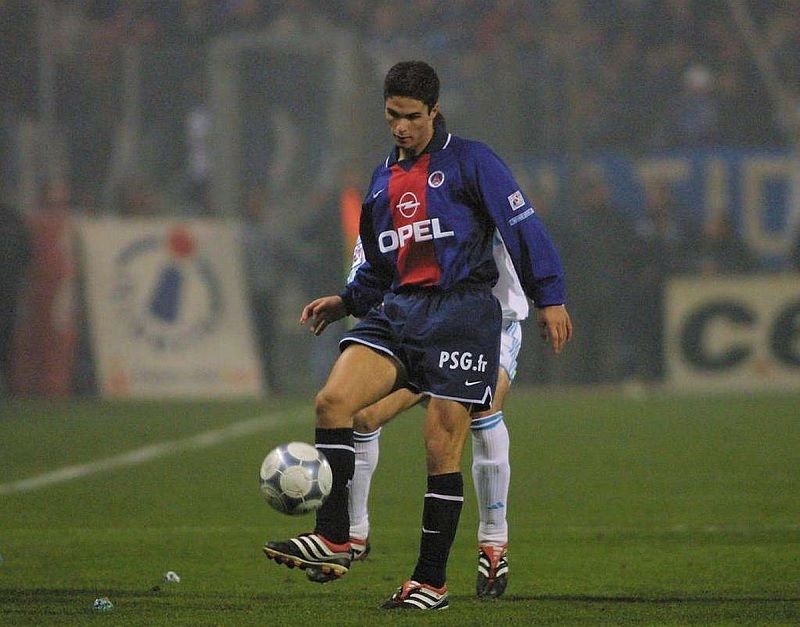
Arteta's Early Beginnings and Youth Career
However, Arteta struggled to adapt to life in Barcelona and left after two years to join Paris Saint-Germain. Despite being only 17 years old, Arteta quickly impressed at PSG, and after just one season, he was called up to the Spanish U-21 team. It was the start of a promising career for the young midfielder.
Rising Through the Ranks
After his time at PSG, Arteta spent two seasons playing for Rangers in Scotland. During his time there, he won the Scottish Premier League twice, and the Scottish Cup once, establishing himself as a key player in the team. However, Arteta's true potential was yet to be realized, and he was signed by Everton in 2005.
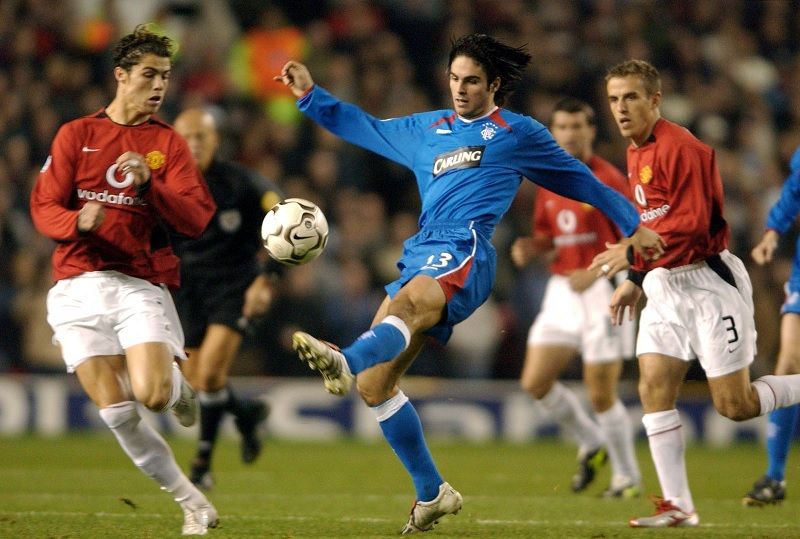
Arteta spent two seasons playing for Rangers in Scotland
Arteta's time at Everton was marked by consistent performances, and he quickly became a fan favorite. His impressive displays on the pitch earned him the captaincy in 2009, and he led the team to their highest-ever Premier League finish. Arteta's success at Everton caught the attention of Arsenal, who signed him in 2011 for a reported fee of £10 million.
Captain of Arsenal and FA Cup Triumph
Arteta's time at Arsenal was marked by his leadership skills and technical ability. In his first season, he helped the team to finish third in the Premier League and qualify for the Champions League. In his second season, Arteta was named the club's vice-captain, and in 2014, he was named captain of the team following the departure of Thomas Vermaelen.
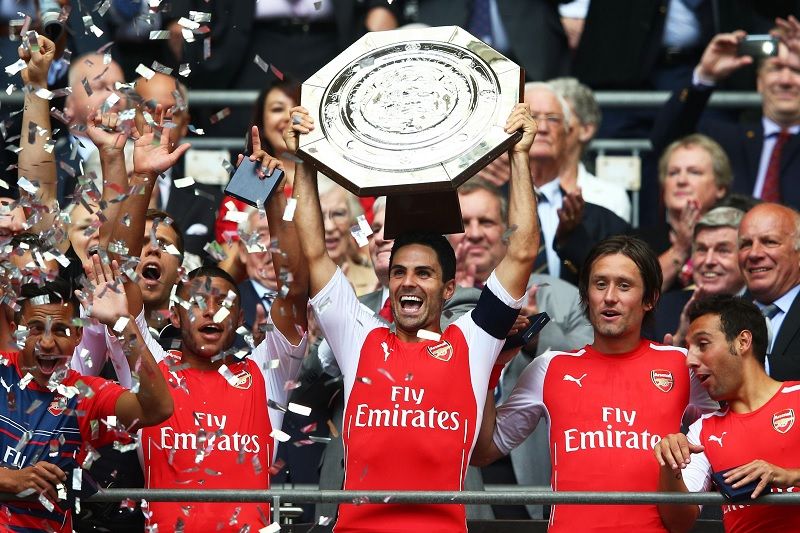
Arteta lifting the trophy as captain
Arteta's leadership skills were put to the test in 2014 when Arsenal faced Hull City in the FA Cup final. Arsenal found themselves 2-0 down after just eight minutes, but Arteta rallied his team and helped them to stage a comeback. The game eventually ended 3-2 in Arsenal's favor, with Arteta lifting the trophy as captain. It was a proud moment for the Spaniard, who had finally won a major trophy after years of hard work.
Arteta's Coaching Career
Arteta's Coaching Career Highlights
Arteta's journey as a coach started in 2016 when he joined Manchester City as an assistant coach under Pep Guardiola. During his time with Manchester City, Arteta helped the team to win the Premier League in 2018 and 2019, as well as the Carabao Cup in 2018 and 2020.
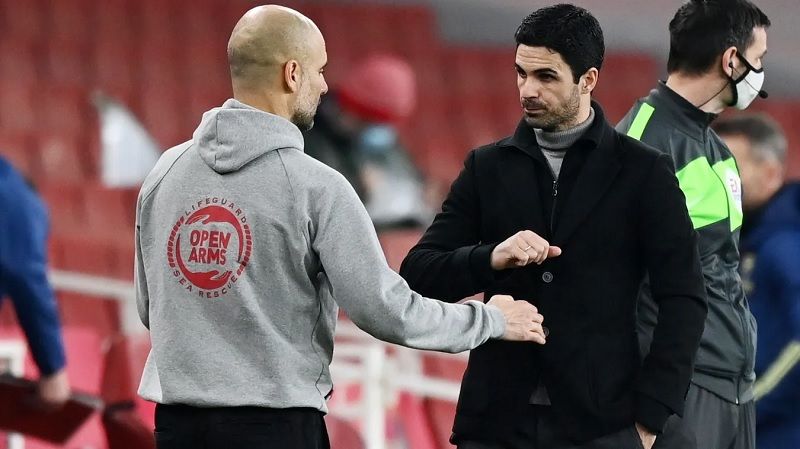
Arteta joined Manchester City as an assistant coach under Pep Guardiola
In December 2019, Arteta was appointed as the head coach of Arsenal, replacing Unai Emery. He signed a three-and-a-half-year deal with the club and became the 20th full-time boss in their 133-year history. His first game as the manager of Arsenal was against Bournemouth, which ended in a 1-1 draw.
In August 2020, Arteta won his first trophy as Arsenal's manager, leading the team to a 2-1 victory over Chelsea in the FA Cup final. Under Arteta's leadership, Arsenal has also won the Community Shield in 2020, beating Liverpool in the penalty shoot-out.
Arteta's Impact on Arsenal
Arteta has made a significant impact on Arsenal since becoming their manager. He has brought in a new style of play that focuses on ball possession and quick passing, which has helped the team to improve their overall performance on the pitch.
Arteta's Impact on Arsenal
Arteta's attention to detail and tactical knowledge has also helped him to improve the defense of the team. Arsenal has conceded fewer goals under Arteta's management, and the team has become more organized in their defensive play.
Arteta has also shown his leadership skills by helping Arsenal to win their first trophy in three years. He has motivated the players and instilled a winning mentality in the team, which has helped them to achieve success in the FA Cup and the Community Shield.
Arteta's Future as a Coach
Arteta's future as a coach looks bright, given his success with Arsenal and his experience as an assistant coach at Manchester City. He has shown that he has the potential to become one of the best coaches in the world of football. Arteta's contract with Arsenal runs until June 30, 2025. The club has shown their faith in him by promoting him from head coach to first-team manager, which is a recognition of his capabilities.
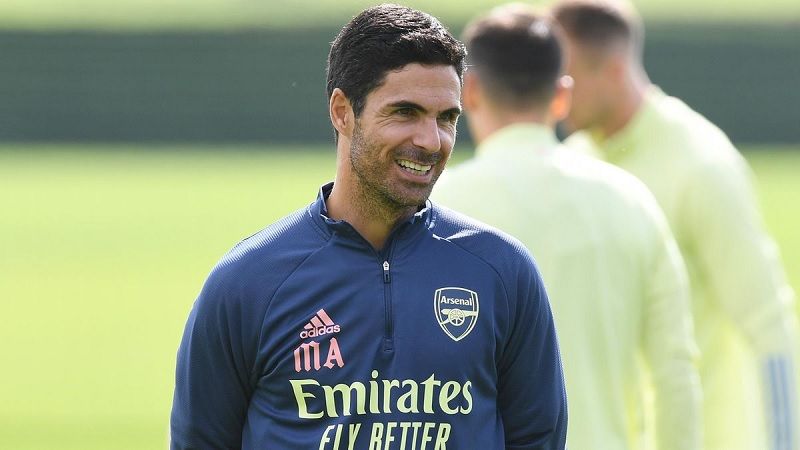
Arteta's future as a coach looks bright, given his success with Arsenal
Arteta's Tactical Philosophy
We will take a closer look at Arteta's tactical philosophy and how it has propelled Arsenal to success in recent years. We will examine his preferred system of play, his focus on positional play, and his coaching style, among other things.
System of Play: 4-2-3-1
One of the key elements of Arteta's tactical philosophy is his preferred system of play. Arteta initially experimented with a 3-4-2-1 formation but ultimately settled on a more dynamic 4-2-3-1 system. This system has remained his preferred formation since then.
Arteta's tactical philosophy is his preferred system of play
In the 4-2-3-1 formation, Arsenal plays with a back four, two holding midfielders, three attacking midfielders, and one center forward. This formation allows for greater attacking flexibility, as the three attacking midfielders can rotate positions and move from zone to zone in the final third.
Focus on Positional Play
Arteta is a strong advocate of the positional play approach, where the team in possession takes up positions across the pitch to create numerical advantages. Arsenal's attacking players are encouraged to rotate positions and move from zone to zone in the final third, allowing for greater creativity and unpredictability in the attack.
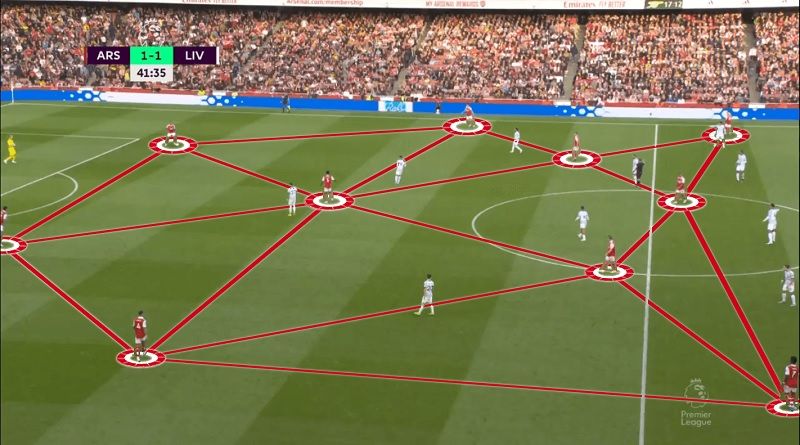
Arteta is a strong advocate of the positional play approach
Arteta's focus on positional play extends to the defensive side of the game as well. Arsenal's defenders are instructed to play out from the back, with the goalkeeper and center-backs looking to play through the lines to the midfielders. This approach allows Arsenal to maintain possession of the ball and build attacks from the back.
Coaching Style
Arteta's coaching style is characterized by his attention to detail and his emphasis on hard work and discipline. He is known for his meticulous preparation for games and his ability to motivate his players to perform at their best.
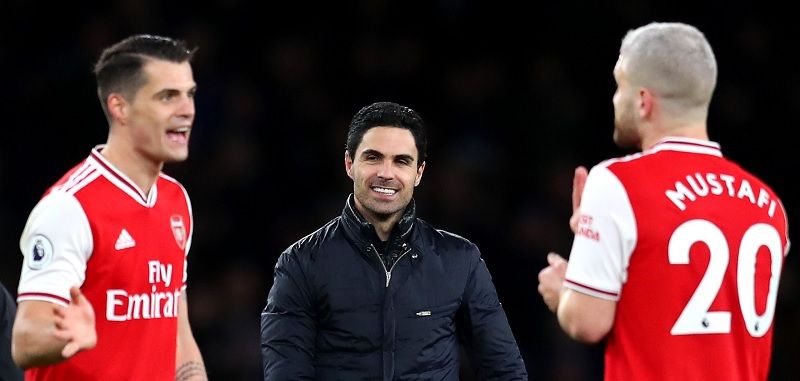
Arteta's coaching style is characterized by his attention to detail
Arteta is also known for his willingness to give young players a chance in the first team. He has shown a particular affinity for developing young talent, and several Arsenal players have credited him with helping them reach new levels in their careers.
Leadership and Man-Management
Leadership and man-management skills are vital for any team to achieve its goals, and Mikel Arteta, the current Arsenal FC manager, is a great example of a leader who excels in these areas. Arteta's success at Arsenal can be attributed to his ability to motivate and manage his players effectively. In this article, we will examine Arteta's leadership and man-management skills, as discussed in various web search results.
Arteta's Man-Management Skills
One key area that stands out in Arteta's leadership is his man-management skills. According to Kieran Dyer, good man-management is crucial in modern football, and Arteta has taken this to heart. His man-management skills have helped to improve the mood and spirit around Arsenal FC, leading to a renewed hunger and positive response from the players. Arteta's focus on individual relationships with his players has been praised, as he takes the time to understand each player's personality, strengths, and weaknesses.
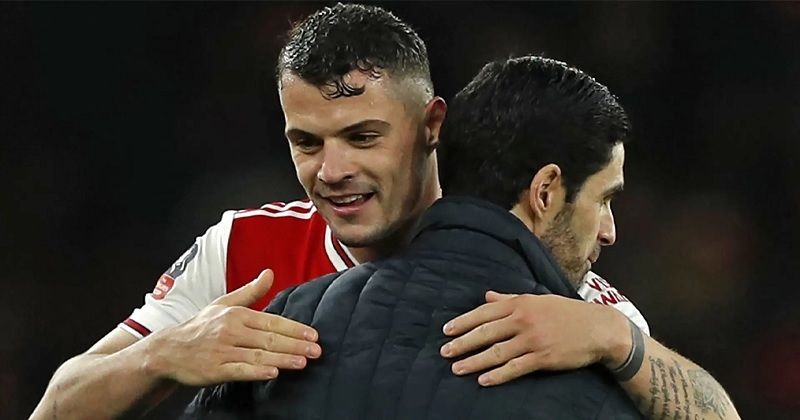
Arteta's Man-Management Skills
Arteta's Leadership Style
Arteta's leadership style is another factor that has contributed to his success as a manager. He has a clear vision for Arsenal FC and communicates this effectively to his players. Arteta is not afraid to make tough decisions, such as his choice of Granit Xhaka as captain, which was initially questioned but has since proved to be a wise decision. He is also known for his attention to detail, which has helped to improve Arsenal's performance on the pitch. Arteta's focus on the task at hand while still maintaining individual relationships with his players has been a crucial part of his leadership style.
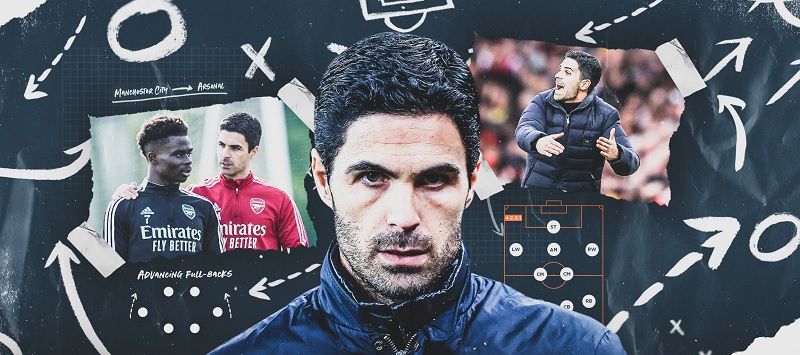
Arteta's leadership style is another factor that has contributed to his success as a manager
Arteta's man-management and leadership skills have been crucial to Arsenal's success since he took over as manager. His ability to motivate and manage his players effectively has led to a renewed hunger and positivity within the team, resulting in better performances on the pitch. Arteta has also been praised for his tactical awareness and attention to detail, which has helped Arsenal to win important games. While Arteta still has much to learn about leadership and man-management, he has already proven himself to be a skilled and effective manager.
Arteta's Impact on Arsenal's Culture
When Arteta took over as the head coach of Arsenal in December 2019, he knew he had a big challenge ahead of him. The club was struggling, both on and off the pitch, and there was a need for a significant cultural shift. Fast forward to today, and Arsenal's performances have improved significantly, and they have won two trophies under Arteta's leadership. In this article, we will delve into the impact of Arteta's leadership on Arsenal's culture, as seen in the provided search results.
Arteta's Cultural Transformation at Arsenal
Arteta's primary goal when he took over Arsenal was to change the club's culture, and he has been successful in doing so. According to an exclusive interview with Sky Sports, the players were queuing up to praise Arteta's impact on the team's culture during the winter break. The coach has overseen a wider cultural shift, improving the players' body language and attitude toward the game. His impact has been so significant that just three games in, there was already evidence of his impact on the team.
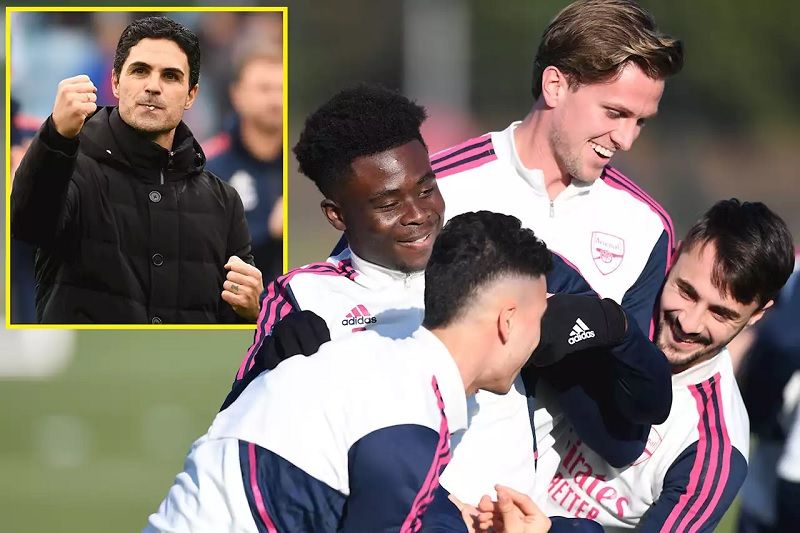
Arteta's Cultural Transformation at Arsenal
Arsenal's Change in Attitude under Arteta
One of the most significant changes that Arteta has brought to Arsenal's culture is a change in attitude. The players have become more resilient and fight until the very end of every match. According to Football London, the team has been throwing themselves at every loose ball and chasing every cause long after it was lost. This never-say-die attitude has resulted in some fantastic results, with the team winning both the FA Cup and the Community Shield in the 2020-21 season.
Arteta's Commitment to Arsenal's Culture
Arteta's commitment to Arsenal's culture shift is unwavering. He has stated that he will give every drop of blood to make the club better. The coach wants to implement a culture shift at Arsenal that will last long after he leaves. He has said that he wants the players to understand what it means to represent the club and the responsibility that comes with it. This is evident in the way he has been able to get the players to buy into his philosophy and put the team first.
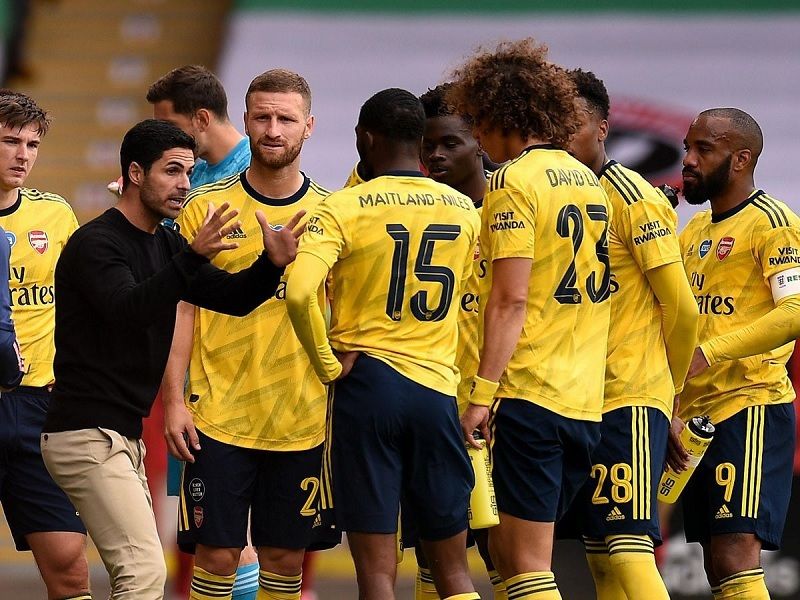
Arteta's Commitment to Arsenal's Culture
Arteta's impact on Arsenal's culture has been nothing short of phenomenal. He has been able to change the players' attitude towards the game, and they are now more resilient and fight until the very end. The coach has overseen a wider cultural shift, improving the players' body language and attitude towards the game. Arteta's unwavering commitment to Arsenal's culture shift has been reflected in the team's recent performances, with Arsenal winning two trophies under his leadership. It is clear that Arteta's impact on Arsenal's culture will be felt for years to come.
Arteta's Successes at Arsenal
Arteta has overseen a remarkable transformation at the club. In this article, we will examine his achievements as Arsenal's manager.
Arteta's FA Cup Triumphs
Mikel Arteta's first season at Arsenal was a successful one. He led the team to a remarkable FA Cup triumph, beating Chelsea 2-1 in the final. The win marked Arsenal's 14th FA Cup trophy, a record in English football history. In his second season, Arteta repeated the feat, guiding Arsenal to another FA Cup triumph, this time beating arch-rivals Tottenham Hotspur in the quarter-finals and Chelsea in the final.
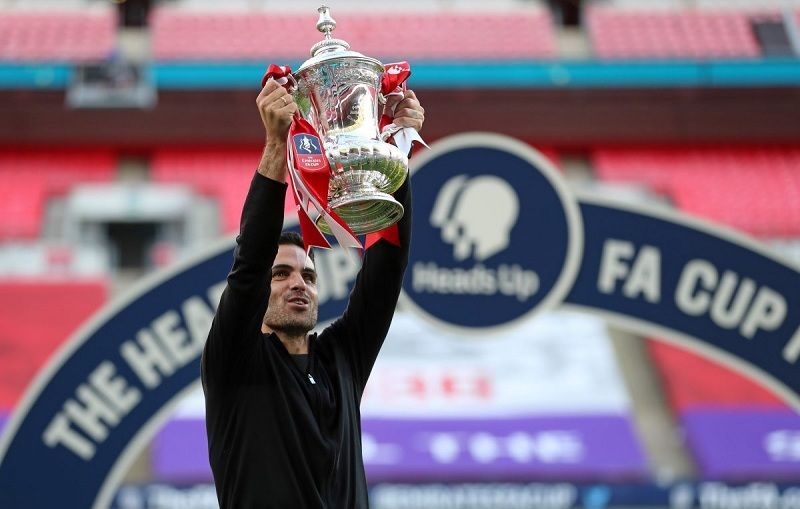
Mikel Arteta's first season at Arsenal was a successful one
Premier League Performances
Arteta's tenure at Arsenal has seen mixed performances in the Premier League. However, the 2022-23 season saw Arsenal sitting at the summit of the Premier League table at Christmas for the first time since the 2007-08 season. Though Arsenal didn't end up winning the Premier League that season, their impressive form throughout the season showcased the progress made under Arteta's tutelage.
Other Achievements
Apart from the FA Cup triumphs and the Premier League performances, Arteta has achieved a lot at Arsenal. He has overseen the development of some of the club's promising youngsters, including Bukayo Saka and Emile Smith Rowe. His emphasis on building a strong team spirit has seen the likes of Pierre-Emerick Aubameyang and Alexandre Lacazette playing for the team rather than themselves. Arteta's tactical nous has also been praised by many, with Arsenal's improved defensive performances being one of the key takeaways of his tenure.
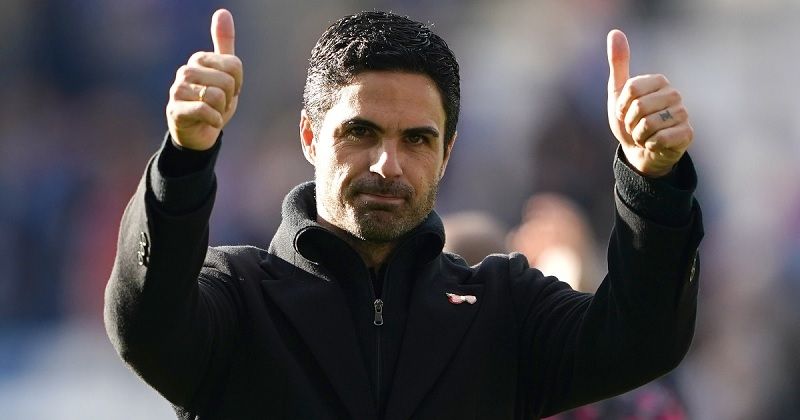
Arteta's achievements have been significant
Mikel Arteta's tenure at Arsenal has been a mix of highs and lows, but overall, his achievements have been significant. His two FA Cup triumphs, a Premier League Christmas number one spot, and the development of promising youngsters are some of the notable achievements of his tenure. His emphasis on team spirit and tactical nous has also seen the club improve defensively. It remains to be seen what Arteta's future holds, but it is clear that his time at Arsenal has been a transformative one.
Arteta's Challenges at Arsenal
In this article, we will explore some of the key challenges that Arteta has faced during his tenure at Arsenal, and how he has dealt with them.
The Pressure to Deliver Results
Arsenal is a club with a rich history and a proud tradition of success. However, in recent years, the Gunners have struggled to maintain their status as one of the top teams in English football. When Arteta took over as manager, there was a lot of pressure on him to deliver results and bring back the glory days of the Emirates Stadium.
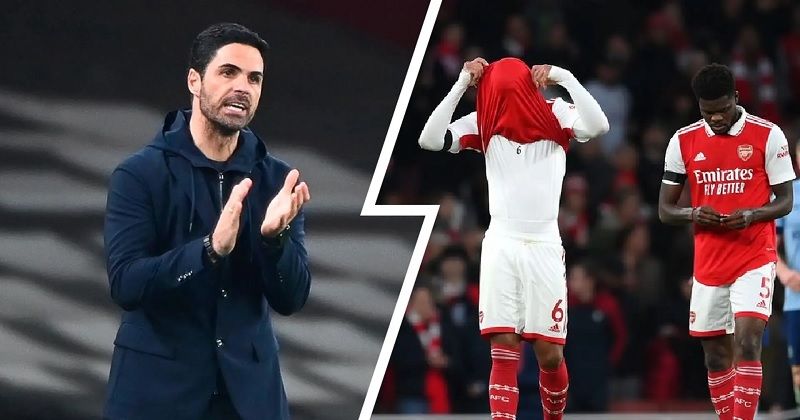
Arsenal is a club with a rich history and a proud tradition of success
Arteta's first season in charge was a success, as he led Arsenal to their record-extending 14th FA Cup title. However, the pressure to deliver results continued into the 2020/21 season, where Arsenal finished a disappointing 8th in the Premier League and failed to qualify for Europe for the first time in 25 years.
Arteta responded to the pressure by overhauling his squad and bringing in a number of new players in the summer of 2021. The likes of Martin Odegaard, Ben White, and Aaron Ramsdale were brought in to bolster the team's midfield and defense, and the early signs have been promising.
Balancing Domestic and European Commitments
One of the challenges that Arteta has had to face is balancing Arsenal's domestic and European commitments. The Gunners have a proud tradition in European competition, having reached the final of the UEFA Champions League in 2006 and the Europa League final in 2019.
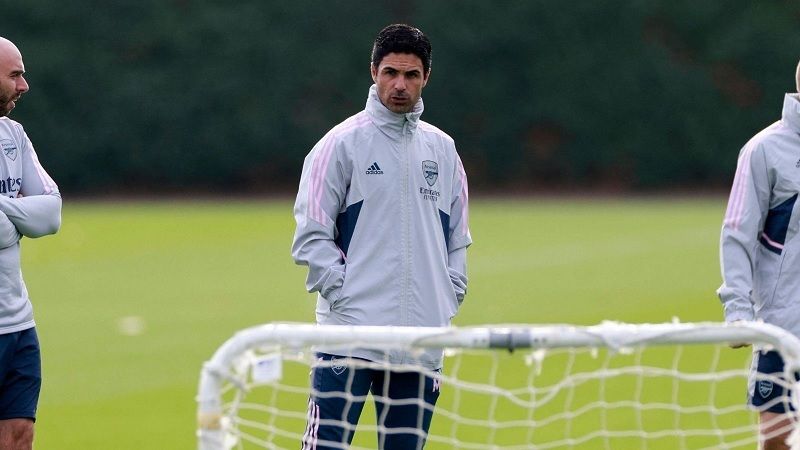
Balancing Domestic and European Commitments
However, Arsenal failed to qualify for Europe in the 2021/22 season, which allowed them to focus solely on their domestic commitments. This season, Arsenal has returned to European competition, and Arteta has had to manage his squad carefully to ensure that they remain competitive in both competitions.
So far, Arteta's balancing act has been successful. Arsenal has made it through to the knockout stages of the Europa League and is also in contention for a top-four finish in the Premier League.
Dealing with Player Form and Injuries
One of the biggest challenges that any football manager faces is dealing with player form and injuries. Arteta has had to deal with his fair share of both during his tenure at Arsenal.
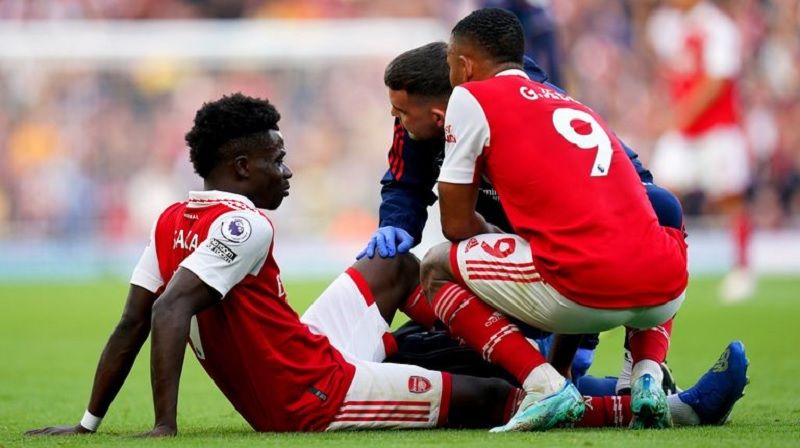
Dealing with Player Form and Injuries
The form of some of Arsenal's key players, such as Pierre-Emerick Aubameyang and Alexandre Lacazette, has been inconsistent at times, which has put pressure on the team's other players to step up. Injuries have also been a problem, with players like Kieran Tierney, Thomas Partey, and Gabriel Martinelli all spending time on the sidelines.
To his credit, Arteta has been able to manage his squad well and has found solutions to these challenges. Youngsters like Bukayo Saka and Emile Smith Rowe have stepped up and made valuable contributions, while the likes of Granit Xhaka and Mohamed Elneny have provided stability in midfield.
Arteta's potential as a top-level manager in Europe
Arteta's rise to fame began during his time at Manchester City, where he worked as Pep Guardiola's assistant. He learned a great deal from Guardiola and played a significant role in Manchester City's success in recent years. Arteta's success at Manchester City caught the attention of Arsenal, who appointed him as their head coach in 2019. Since then, Arteta has been working hard to transform Arsenal into a dominant force in English football.
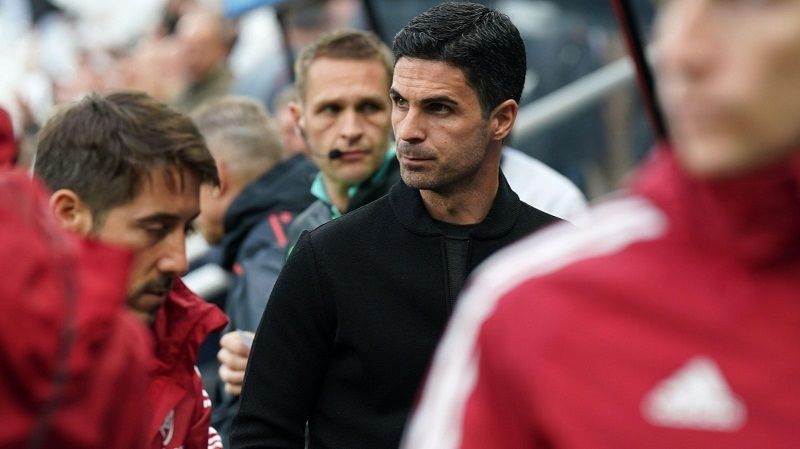
Arteta's potential as a top-level manager in Europe
Arteta's performance as Arsenal's manager has been a mixed bag. He inherited a squad that was struggling and was expected to turn things around quickly. His first major achievement came in August 2020 when Arsenal won the FA Cup, beating Chelsea 2-1 in the final. Arteta also guided Arsenal to their second successive FA Cup final in 2021, but they lost to Chelsea. Despite these achievements, Arsenal's performance in the Premier League has been inconsistent, and they have struggled to finish in the top four.
Despite Arsenal's inconsistent performance, Arteta's potential as a top-level manager is being discussed widely. Real Madrid is reportedly considering Arteta as a replacement for Carlo Ancelotti. Arteta is one of the youngest managers working in a top-five European division and is credited with transforming Arsenal's playing style. He has also shown a willingness to make tough decisions, such as convincing Granit Xhaka to stay and selling Mesut Ozil. Arteta's ability to develop young players is also noteworthy, and Arsenal currently has one of the youngest squads in Europe's top five leagues.
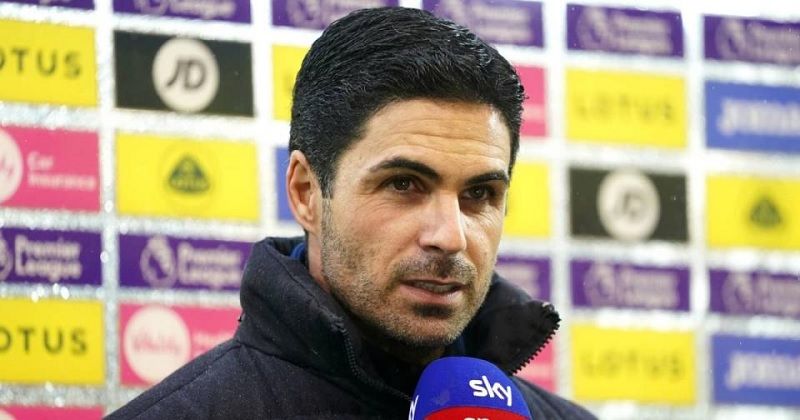
Arteta's potential as a top-level manager is being discussed widely
Mikel Arteta's potential as a top-level manager in Europe is gaining traction, and there is a lot of talk about his abilities and what he brings to the table. Despite Arsenal's inconsistent performance, Arteta's success in transforming the team's playing style, his willingness to make tough decisions, and his ability to develop young players have put him in the spotlight. It remains to be seen what the future holds for Arteta, but one thing is for sure, he is a manager to watch out for in the years to come.
Conclusion
Mikel Arteta's rise to prominence as a manager has been remarkable. Despite having no previous experience in management, he has managed to make a significant impact at Arsenal FC. His focus on youth development, attention to detail, and tactical approach have all contributed to Arsenal's improvement under his leadership.
As he enters his second year in charge of the club, Arsenal fans will be hoping that Arteta can continue to build on his early success and lead the club back to the top of English football. With his talent and potential, there is no doubt that he could become one of the best managers in the game in the years to come.
FAQs
1. Who is Mikel Arteta?
Mikel Arteta is a former professional footballer who played for clubs like Paris Saint-Germain, Rangers, Everton, and Arsenal. He is currently the manager of Arsenal FC.
2. What has Arteta achieved as a manager?
Arteta has achieved some notable successes as a manager, including winning the FA Cup with Arsenal in his first season in charge.
3. What is Arteta's tactical approach?
Arteta's tactical approach is based on making Arsenal more defensively solid while also improving their attacking play. He has also shown a willingness to experiment with different formations and systems.

Related Content
